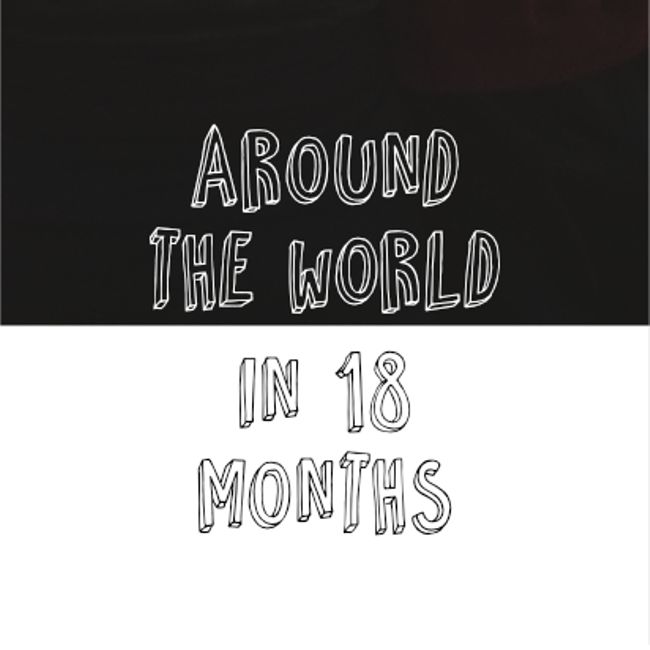Tag 110: Puno, Peru
Được phát hành: 24.05.2017
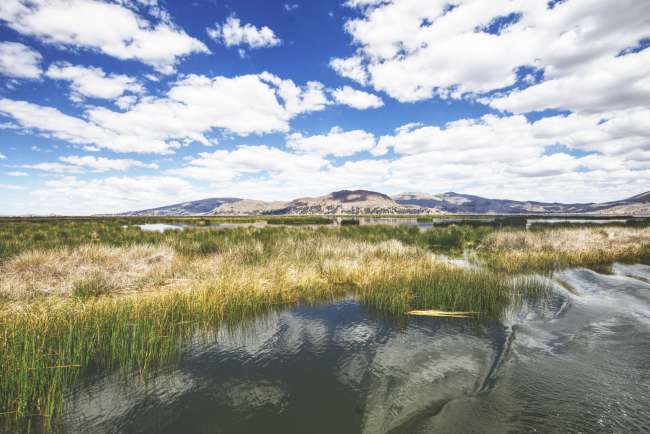
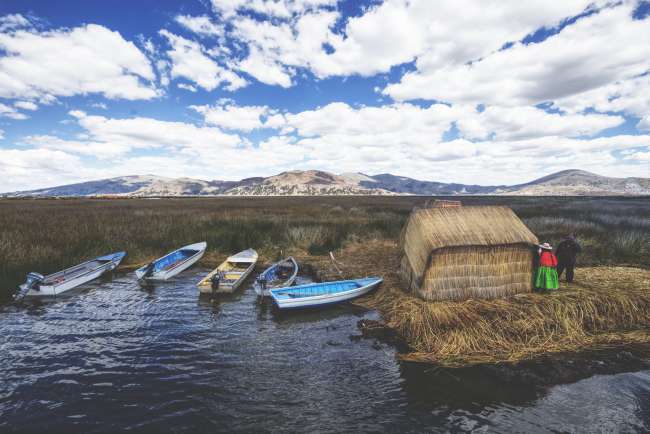
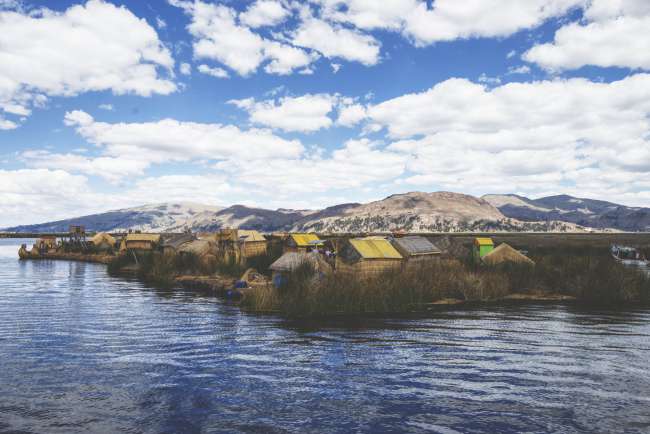
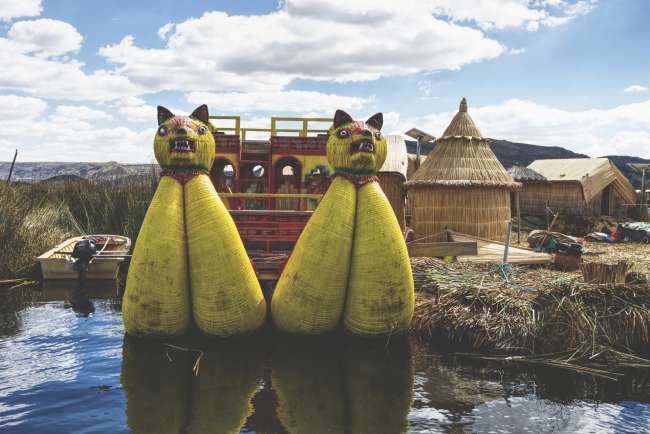
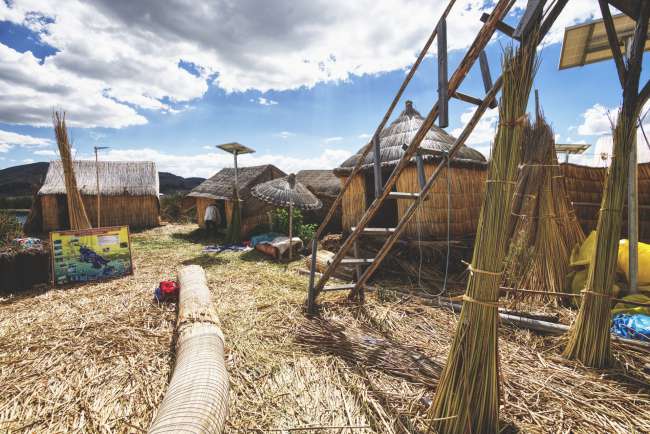
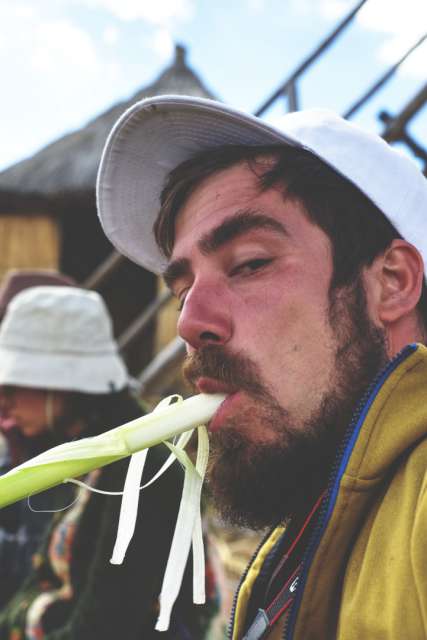
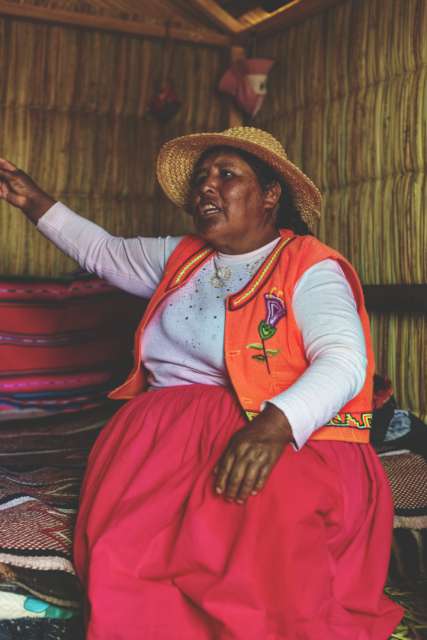

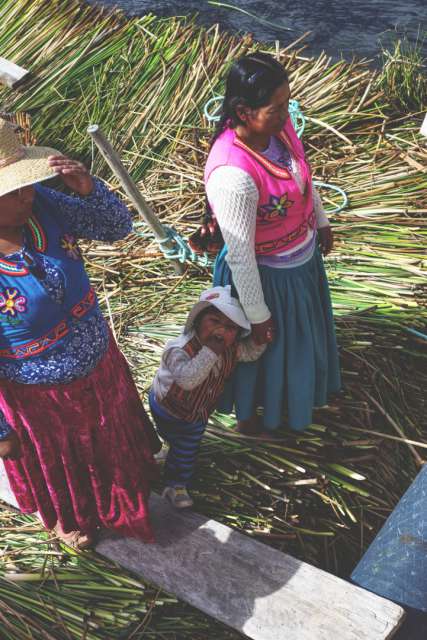

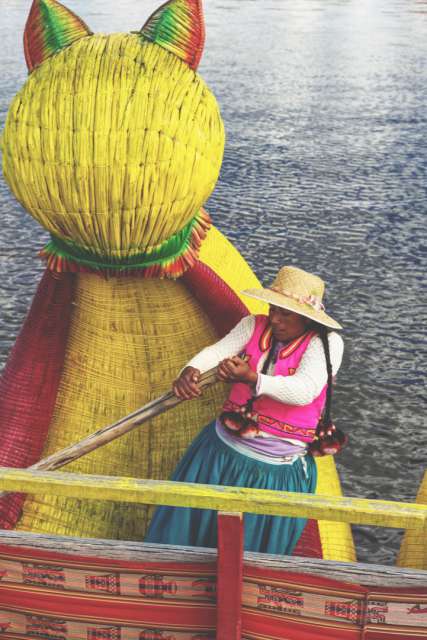
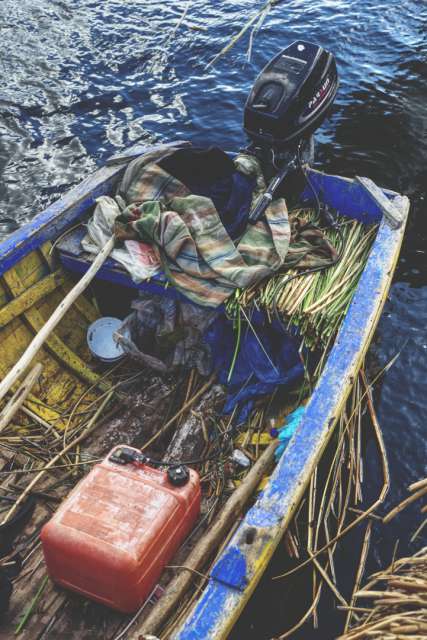
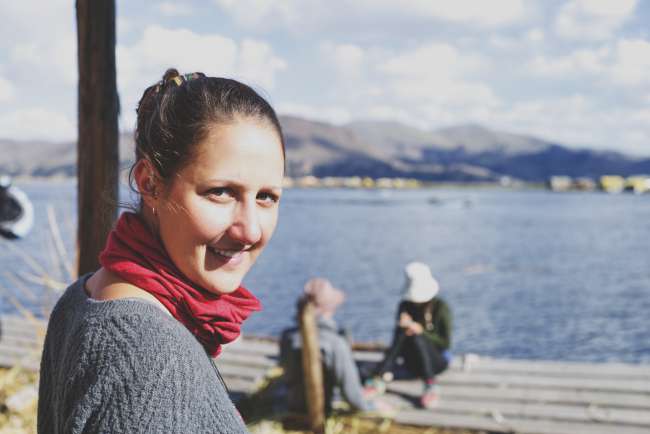
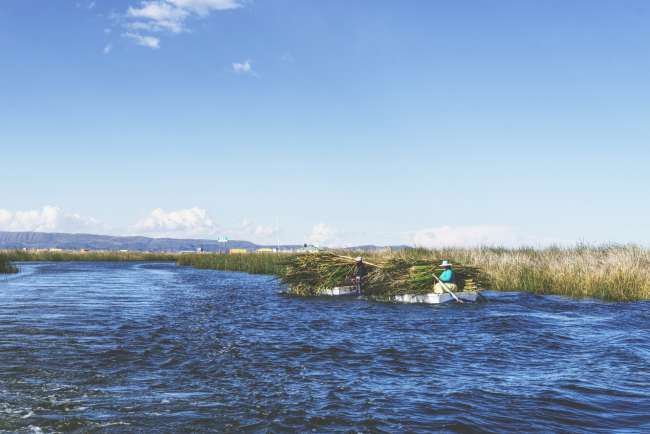
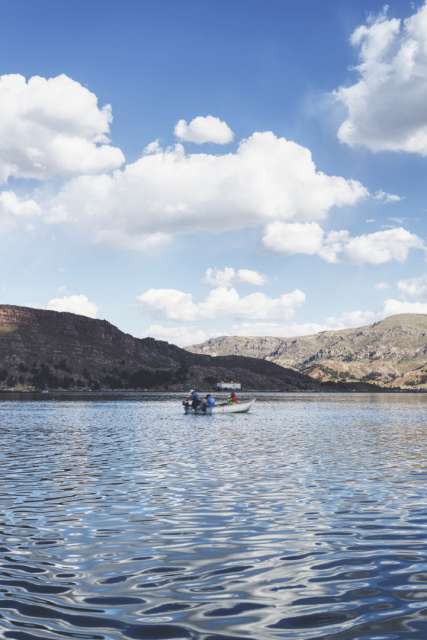
Đăng ký tin
My alarm clock goes off. Then Tobias' alarm clock and about 30 seconds later Sabrina's. It's 7:30 am. We have a triple room. We get dressed and ready. Breakfast is already prepared. Rolls, pancakes, jam, butter, cheese and avocado. And tea. We are the only guests in the four-story family-run business. Since we haven't planned anything for today, and we haven't really informed ourselves beforehand about what there is to do here, we quickly let ourselves be persuaded to take a tour without knowing what to expect. 'Floating islands'. It's 10:05 am, our taxi is here, or rather, a woman who takes us to our taxi. We walk a bit into town and wait. The woman is replaced by a man who takes us by taxi to the port. Now we are handed over to another man. We still don't know exactly what's going on here and what to expect. We get on a boat with other tourists and set off. Along the way, we are given a lot of information about Lake Titicaca and a few obligatory jokes are made. Then we are allowed to go up on the roof. The view is beautiful, we sail across the blue lake through the reeds until we pass a kind of border. Three Bolivians are sitting on a self-built reed island in front of a self-built house, checking who is passing by. So these are the 'floating islands'. As we continue, a huge floating village opens up before us, right in the middle of Lake Titicaca. We head for a certain small island with four houses. As we approach the island by boat, we are loudly greeted by three plump, colorful-dressed women with 'Kamisaraki' (hello). On the way, we have already been taught that we should all respond in unison with 'Waliki'. We all sit in a semicircle on a reed roll and listen to a very interesting lecture about the culture of the Uros and how they build their islands. After that, we are taken by groups of four by Bolivian women to their houses. Here we can ask them any questions. Very interesting. Afterwards, they show us their stand with handmade souvenirs. Of course, we are now expected to buy something, our guide also reminds us that it would be good to financially support these women and their culture. Then we are offered another option to leave our money here. For 10 Bolivianos, we are paddled across the lake with one of their traditional boats for 15 minutes. Done deal. However, before we set off, we are treated to a rather strange show. Before we start, the women start to sing and dance very unmotivated and unskillfully. But not beautiful traditional songs, but German, English, and Spanish hits like 'Vamos a la playa'. The whole thing is supposed to amuse us tourists. As I look around, I realize that it works for most people. For me, the situation is rather strange. It gets even more strange when we sit on the boat and watch some tourists start taking selfies with the hard-paddling Bolivians and loudly ask them to smile for the camera. After a few minutes, we arrive back on the floating island, say goodbye politely, and change boats again. We sail to the center of the floating village, where of course we are offered the option to spend some money. Then we sail back to the port. The trip to the islands, the culture behind them, and the people who live here are very interesting. However, the grotesque spectacle of rehearsed theater and constant attempts to amuse the tourists from beginning to end was very uncomfortable for me. If the trip focused more on the original and cultural aspects, it would have been an incredible excursion. But if I want to spend a lot of money to see living beings perform silly tricks while supposedly higher beings laugh at them, I might as well go to the circus.
As evening comes, hunger sets in and we set out to find an inexpensive restaurant. We received a tip from our hostel owner. We walk through the city, decline about 23 restaurant invitations, and finally find the restaurant in question. We are the only customers. We sit down and wait for the waitress. Without saying a word to us, she places a soup in front of each of us. Then a tea. Somewhat puzzled, we start eating. After a few minutes, the grumpy waitress comes back to our table and asks us about the main course. She points to a board with four dishes listed. We choose one and she loudly repeats the names of the dishes so that the kitchen staff knows. We get our food, which mainly consists of dry rice, a little bit of vegetables, and a piece of meat. When we're done, we are sent to the cashier. The two-course menu with tea and a cola costs 1.20€ per person. We can't claim that we ate particularly well, but it was definitely cheap. Afterwards, we head back to the hostel.
Đăng ký tin
Trả lời
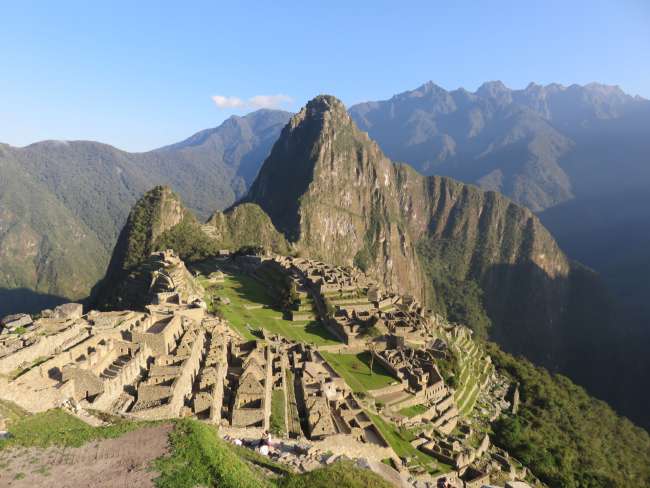
Báo cáo du lịch Pêru

